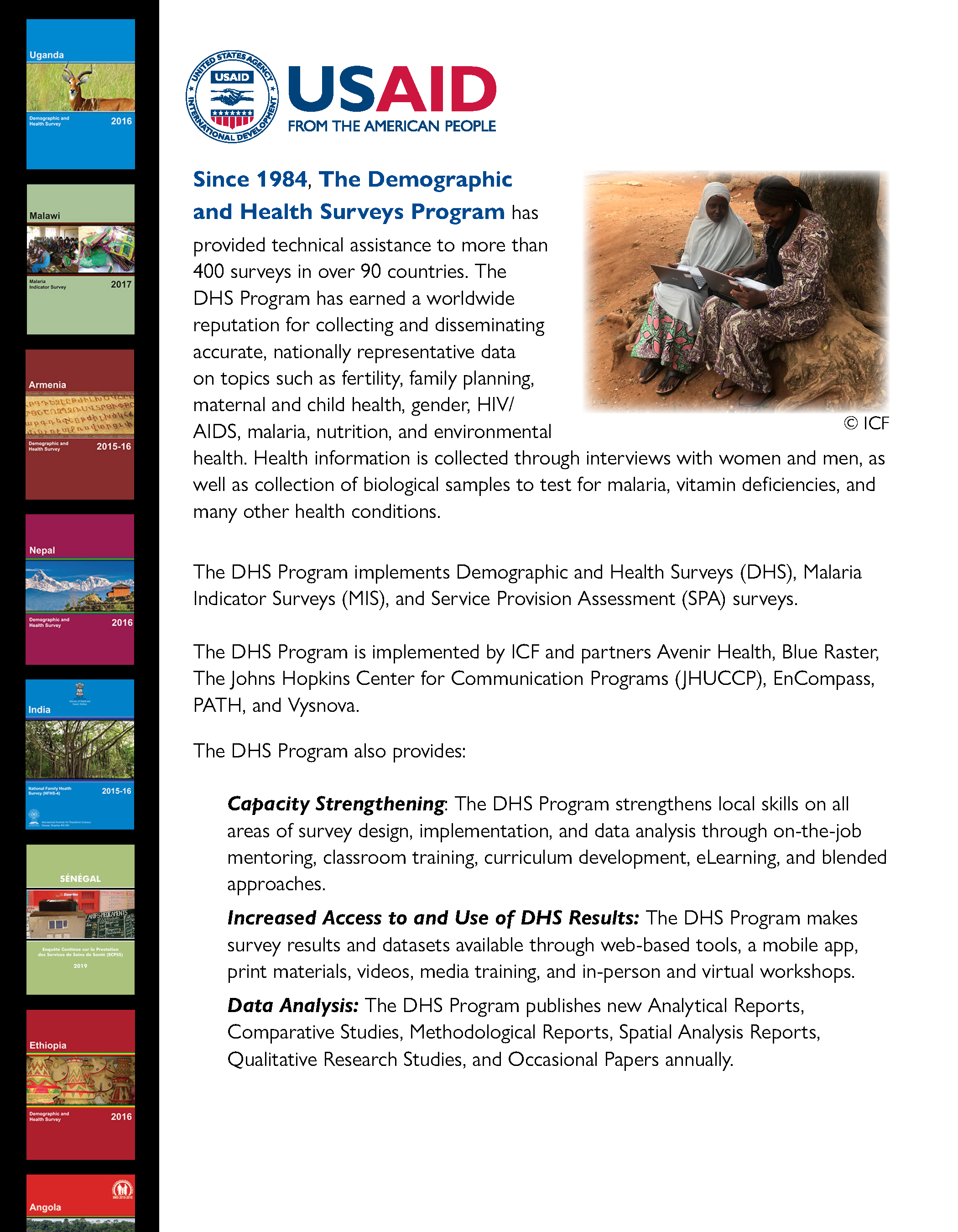Press Releases
New survey shows 7 in 10 children are receiving the recommended treatment for malaria
Monrovia, Liberia
The Minister of Health and Social Welfare, Dr. Walter Gwenigale, officially launched the 2011 Liberia Malaria Indicator Survey (LMIS) today, which provides data on all aspects on malaria, including malaria knowledge, malaria prevention, as well as the prevalence of malaria and severe anemia among children.
Seventy percent of Liberian children under age five with fever who received an antimalarial drug received artemisinin-based combination therapy (ACT), the recommended treatment in Liberia. ACT has been the first-line antimalarial treatment in Liberia since 2003. The proportion of children receiving ACT has increased dramatically since the 2009 LMIS, when just 44% of children who received an antimalarial drug received ACT.
One half of Liberian households own an insecticide-treated net (ITN), a slight increase from 47% of households in the 2009 LMIS. The majority (89%) of mosquito nets were obtained free of charge. The 2011 LMIS also shows increases in the use of ITNs by the populations most vulnerable to malaria—pregnant women and children. Currently, 39% of pregnant women slept under an ITN the night before the survey, compared with 33% in 2009. Use of ITNs by children under age five has increased from 26% in 2009 to 37% at present.
The 2011 LMIS tested children age 6-59 months for malaria and anemia. Nearly 1 in 3 (28%) Liberian children have malaria. Malaria is most common among children age two years and older and in the North Central and South Eastern B regions. Children living in rural areas are twice as likely to have malaria as children living in urban areas (35% versus 17%). Overall, 8% of Liberian children are severely anemic. Severe anemia is most common in the North Central and South Central regions.
The 2011 Liberia Malaria Indicator Survey (LMIS) carried out by the National Malaria Control Program of the Ministry of Health and Social Welfare (MOHSW) in collaboration with the Liberia Institute for Statistics and Geo-Information Services (LISGIS). The government of Liberia provided financial assistance in terms of in-kind contribution of personnel, office space, and logistical support. Financial support for the survey was provided by the United States Agency for International Development (USAID) from President’s Malaria Initiative funds through ICF International. ICF International also provided technical assistance, medical supplies, and equipment for the survey through the MEASURE DHS program, which is funded by USAID and is designed to assist developing countries in collecting data on fertility, family planning, and maternal and child health.
The 2011 LMIS interviewed 4,162 households and 3,939 women age 15-49. Malaria and anemia testing were carried out on children age 6-59 months. Malaria testing was done through both First Response rapid diagnostic blood testing, as well as blood smear microscopy. Anemia testing was carried out on a blood drop using the HemoCue system. Of the 3,229 eligible children, 98% provided blood for anemia and rapid diagnostic testing, while 94% provided blood for malaria microscopy testing.
For more information, contact: National Malaria Control Program, Ministry of Health and Social Welfare, Capitol By-Pass, PO Box 10-9009, 1000 Monrovia 10, Liberia (Telephone: 231-88652-8010 or 231-77751-6577; E-mail: jjonesdr@yahoo.com).
